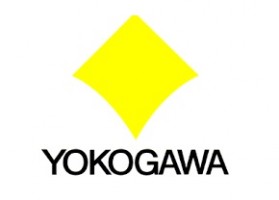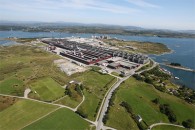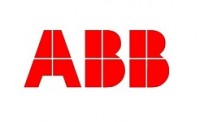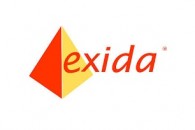 Yokogawa Electric Corporation has recently announced that it has established Yokogawa Innovation Switzerland GmbH to build a strong base for its bioeconomy business through the provision of quick and proactive market research and development activities, and the introduction of cutting-edge biotechnologies. The new subsidiary was officially registered on June 26th, and business operations will start from August.
Yokogawa Electric Corporation has recently announced that it has established Yokogawa Innovation Switzerland GmbH to build a strong base for its bioeconomy business through the provision of quick and proactive market research and development activities, and the introduction of cutting-edge biotechnologies. The new subsidiary was officially registered on June 26th, and business operations will start from August.
Switzerland is ranked high in global competitiveness and is a gathering point for highly talented professionals. Yokogawa Innovation Switzerland is located in Allschwil, directly next to the city of Basel, which is the European center of the biotechnology and life science industry. In this ideal location, the new company will promote Yokogawa’s bioeconomy business through research and development and partnerships. It will focus on discovering research themes, promoting open innovation, and searching for business partners. To coincide with the opening of the new subsidiary, Yokogawa Europe’s existing Swiss branch for its industrial automation business has also moved to the same location as the new company.
The bioeconomy is considered to be an important pillar for building a sustainable society, and governments and corporations in many countries are concentrating on this field. It is one of the focus areas defined in Yokogawa’s long-term business framework, and through its bioeconomy business and other initiatives the company is working to achieve the sustainable development goals (SDGs) and contribute to the development of a circular economy. To acquire technologies and expertise in the bioeconomy field, Yokogawa has already taken steps such as investing in AlgaEnergy, a Spanish company that is a leader in the production and application of microalgae.

 Yokogawa Electric Corporation has announced that its Norwegian subsidiary, Yokogawa TechInvent AS, has received orders to provide 59 high-performance FluidCom chemical injection metering valves for two offshore oil fields that are being developed by Equinor ASA, a Norwegian energy company. One destination is the Johan Sverdrup field in the North Sea, 160 km west of Stavanger, and the other is the Johan Castberg field in the Barents Sea, 240 km northwest of Hammerfest. The orders for the FluidCom valves were placed through the suppliers of the chemical injection packages for these projects.
Yokogawa Electric Corporation has announced that its Norwegian subsidiary, Yokogawa TechInvent AS, has received orders to provide 59 high-performance FluidCom chemical injection metering valves for two offshore oil fields that are being developed by Equinor ASA, a Norwegian energy company. One destination is the Johan Sverdrup field in the North Sea, 160 km west of Stavanger, and the other is the Johan Castberg field in the Barents Sea, 240 km northwest of Hammerfest. The orders for the FluidCom valves were placed through the suppliers of the chemical injection packages for these projects. Hydro Aluminium AS is building the most climate-friendly, energy-efficient aluminum smelting plant in the world on Norway's Karmøy peninsula. Siemens is supplying a VB1 high-current switchgear with vacuum switching technology and the high-current supply unit for production. Measuring 34 meters long with 26 switchgear panels, it will be the longest high-current and generator switchgear ever built by Siemens. This type of system protects equipment such as generators and transformers from overvoltage and short-circuits. To ensure the supply of electrical power for the production process, Siemens is also providing six large converter units, including the associated control and protection systems and the requisite cooling systems. The converters convert AC current to DC current for operating the power-intensive smelting furnaces. The scope of supply also includes automation technology with the PCS7 process control system and distributed I/O systems as well as operator control and monitoring systems. The high-current switchgear is to be delivered by the end of 2016, while the high-current supply unit will be handed over by the end of 2017. Siemens was already commissioned last year to supply the main transformers for this project.
Hydro Aluminium AS is building the most climate-friendly, energy-efficient aluminum smelting plant in the world on Norway's Karmøy peninsula. Siemens is supplying a VB1 high-current switchgear with vacuum switching technology and the high-current supply unit for production. Measuring 34 meters long with 26 switchgear panels, it will be the longest high-current and generator switchgear ever built by Siemens. This type of system protects equipment such as generators and transformers from overvoltage and short-circuits. To ensure the supply of electrical power for the production process, Siemens is also providing six large converter units, including the associated control and protection systems and the requisite cooling systems. The converters convert AC current to DC current for operating the power-intensive smelting furnaces. The scope of supply also includes automation technology with the PCS7 process control system and distributed I/O systems as well as operator control and monitoring systems. The high-current switchgear is to be delivered by the end of 2016, while the high-current supply unit will be handed over by the end of 2017. Siemens was already commissioned last year to supply the main transformers for this project. ABB recently announced it has completed its acquisition of GE Industrial Solutions (GEIS), GE’s global electrification solutions business on June 30, 2018. The transaction was announced on September 25, 2017, and is expected to be accretive to operational EPS in the first year.
ABB recently announced it has completed its acquisition of GE Industrial Solutions (GEIS), GE’s global electrification solutions business on June 30, 2018. The transaction was announced on September 25, 2017, and is expected to be accretive to operational EPS in the first year. exida, a global supplier of functional safety products, services and certifications is pleased to announce a business partnership with Precision Engineering Inc. (PEI).
exida, a global supplier of functional safety products, services and certifications is pleased to announce a business partnership with Precision Engineering Inc. (PEI).